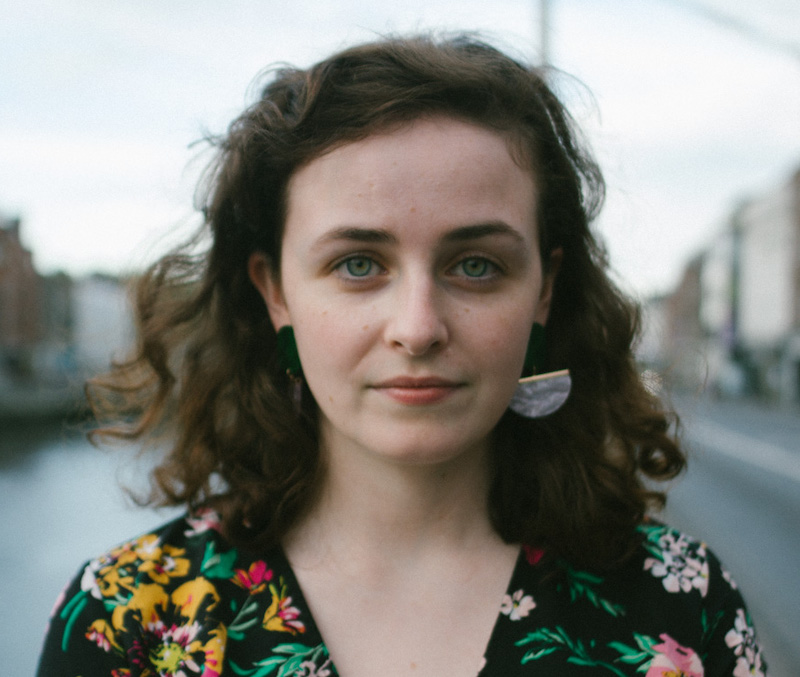International Literature Festival Dublin is an annual event that gathers together some of the most intriguing writers from around the world to celebrate a shared love of literature. In line with pandemic etiquette, this year’s festival will take place entirely online. Despite this inevitable change, spirits will not be dampened considering the broad range of exciting events programmed from October 22nd to 28th. This year’s packed programme includes in-depth conversations with established and emerging writers, poetry performances, podcasts and writing workshops.
Author Elaine Feeney and Poet Eva Griffin spoke with The University Times about the online events they’re involved in and their sentiments surrounding the festival’s new 2020 format. Feeney will sit on a panel discussion event, Rallying Cry: New Voices in Irish Fiction, chaired by broadcaster Edel Coffey. She will be chatting about her debut novel As You Were, which was published in late August, alongside fellow author Hilary Fannin who recently released The Weight of Love.
Eva Griffin is one of 13 poets selected for the Introductions Series, a digital showcase in which each chosen artist will perform two original poems. “So, that’s 26 luscious poems to enjoy”, Griffin adds. An accompanying e-book of the featured poets’ work will also be free to download for the duration of the festival. As part of the series, Griffin will read two poems from her pamphlet “Fake Hands / Real Flowers”, published earlier this year. Two of her newer poems will also be published in the e-book alongside a “pandemic postcard”, reflecting on being a writer in the current climate.
“I think we’ve seen how issues of access weren’t so much ‘issues’ as they were cases of neglect or disinterest and, in future, I would hope that more organisers take a blended approach to their programming.”
Feeney and Griffin emphasise the importance of these events, both for the festival audience and the creatives who are continuing to work through such a turbulent time. For Griffin, the Introductions Series is “a great anchor when so many creatives are feeling adrift”. Being able to work with and learn from her contemporaries during such a restricted period, has become “a lifeline”, she says.
Feeney feels similarly grateful to be part of such a panel, as “any space you are given to air your views, thoughts and speak about your work is invaluable”. She values her readers greatly and regrets that she can’t meet any of them face-to-face, but simultaneously, recognises the benefits of online events in granting wider accessibility. “The flip side to online events is that they are more inclusive for some people in society who were unable to get out to these events before, due to many reasons, financial, childcare, disability.”
Griffin addresses the same issue, stating: “I think we’ve seen how issues of access weren’t so much ‘issues’ as they were cases of neglect or disinterest and, in future, I would hope that more organisers take a blended approach to their programming, even when it doesn’t appear ‘necessary’ post-pandemic.” However, she admits to missing “the magic of a live event”.
“I hope people will be open to embracing unknown voices and varying styles.”
Despite this, both writers very much look forward to their participation. Feeney believes her panel discussion will be “a frank and honest chat, offering a way that people can escape the immediate turmoil we are all living in”. She also hopes that the festival will leave people with the recognition that “art is work, and that it is an invaluable addition to a functioning society”.
Griffin sees the Introductions Series as an ideal platform for showcasing the diversity of contemporary Irish poetry: “I hope people will be open to embracing unknown voices and varying styles”. Having worked with the other poets taking part, she says, “it’s very clear that we all have different poetic interests” and believes that this variety excites the arena of Irish poetry.
When asked if she is disappointed not to be able to perform her poetry live, Griffin replies: “Absolutely. My cat doesn’t exactly make for a very attentive audience member.” On the other hand, she expresses immense gratitude for the excitement the festival has brought to an otherwise dull year. “I’ll be clinging to the Introductions Series for as long as I can”, she says. As someone who’s also missing the social side of festivals, Feeney tells me that she has “started making events of online events. To that end, I’ll put on some lipstick, a nice jumper, pour a glass of wine – though I usually leave my slippers on!”
International Literature Festival Dublin will take place from October 22nd to 28th. Further details on the full programme can be found at ilfdublin.com.







